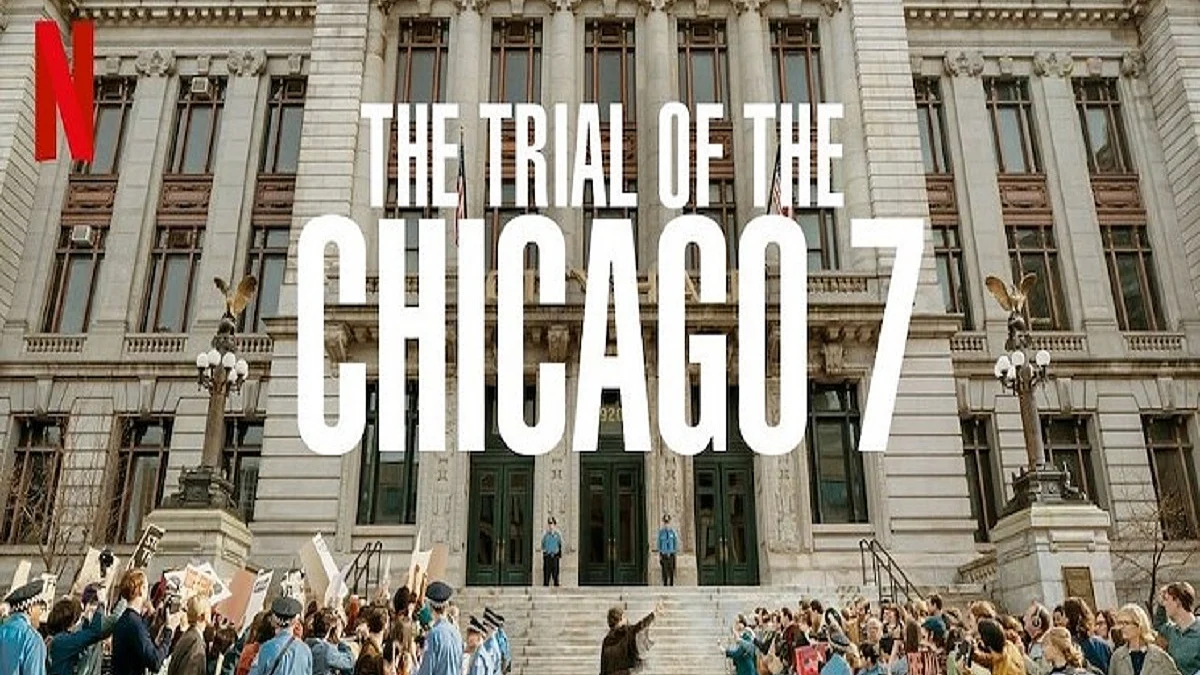‘The Trial of the Chicago 7’: Gripping depiction of a political trial
The story of ‘The Trial of the Chicago 7’ follows a group of defendants collectively known as the Chicago Seven, originally Chicago Eight, who are facing a set of charges made by US federal government

There are civil trials. There are criminal trials. There can be, the viewer is told in The Trial of the Chicago 7, political trials too. Written and directed by Aaron Sorkin, who had won the Academy Award for the Best Adapted Screenplay for The Social Network in 2010, the film streaming on Netflix is a legal drama about that third kind of trial.
Brilliantly edited (Alan Baumgarten) and cinematographed (Phedon Papamichael), the story follows a group of defendants collectively known as the Chicago Seven, originally Chicago Eight, who are facing a set of charges made by the US federal government.
The most significant charge is that of conspiracy and inciting to riot during the 1968 Democratic National Convention in Chicago. The convention was held to select a new presidential nominee for the Democratic Party after President Lyndon Johnson decided not to seek the top job once again. There are other charges, too, which relate to countercultural and anti-Vietnam War protests.
The story unfolds in an era marked by civil unrest. Martin Luther King has been recently assassinated. Robert or ‘Bobby’ Kennedy has faced a similar fate. Anti-Vietnam war protests have spawned sympathisers across the country. The impact of counterculture can be sensed just about anywhere.
It is not difficult to understand which side of the political fence Sorkin is on. The writer of several outstanding screenplays such as those of A Few Good Men (1992), Charlie Wilson's War (2007), Moneyball (2011) and Steve Jobs (2015), he is at the top of his game once again. He uses satire quite liberally, which makes the film with a running time of 130 minutes even more watchable.
Abbie Hoffman, David Dellinger, Tom Hayden, Jerry Rubin, Lee Weiner, John Froines and Rennie Davis constitute the Chicago Seven. William Kunstler, a staunch believer in civil liberties, is defending them. Five of them are eventually convicted for inciting to riot, a verdict that appears inevitable at the outset. Sharing more would spoil the charm of watching the film that makes powerful statements about civil liberties as the story progresses.
All the characters are brilliantly fleshed out, which contributes to our understanding of their personalities. Even though Michael Keaton makes an appearance as the former attorney general Ramsey Clark in a two-sequence role, the character lives on in the mind after the film ends.
The standout performers are Sacha Baron Cohen as Abbie Hoffman, leader of the Youth International Party ((Yippies) and Eddie Redmayne as Tom Hayden, leader of the Students for a Democratic Society (SDS). Yahya Abdul-Mateen II is an unusual choice for Bobby Seale, co-founder of the Black Panther Party, whose trial is severed midway. Seale is bound and gagged in public view, an indication that racism is alive and kicking in the court of Judge Julius Hoffman (Frank Langella). Hoffman would eventually sentence him to four years in prison for 16 counts of contempt.
The Trial of the Chicago 7 tells a story elderly Americans would remember 50 years after the show trial shook people's faith in the legal system. It will revive many other dormant memories, too, none of which shall make them smile.
Follow us on: Facebook, Twitter, Google News, Instagram
Join our official telegram channel (@nationalherald) and stay updated with the latest headlines